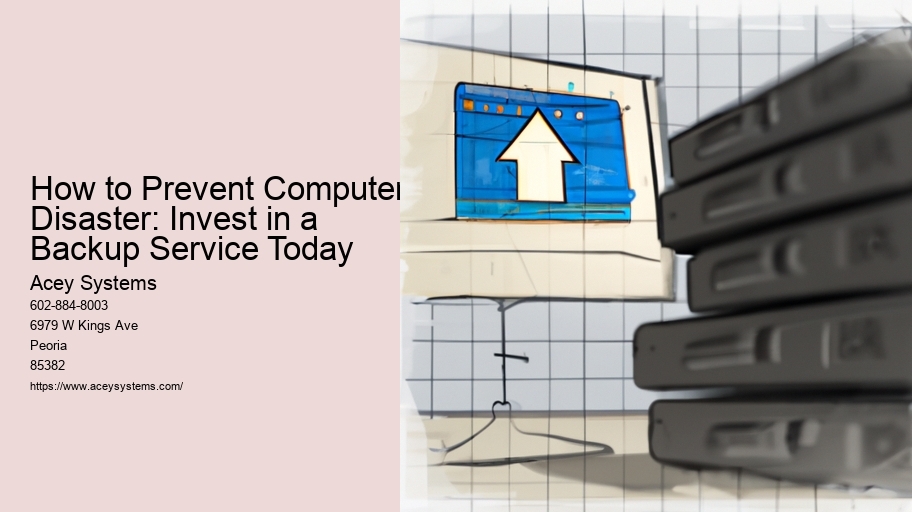In today's digital age, where our lives and businesses heavily rely on technology, the potential for a computer disaster looms like a storm on the horizon. computer backup . To navigate this turbulent landscape, investing in a backup service is akin to building a sturdy shelter.
It provides a safeguard against data loss, system crashes, and cyber threats. This article delves into the importance of regular data backups, factors to consider when choosing a backup service, and best practices for maintaining a reliable backup system.
Prepare for the unexpected and protect your valuable data today.
The Importance of Regular Data Backups
Data backups are paramount for preserving the integrity and security of valuable information. In today's digital age, where data is constantly being generated and shared, the risk of losing important data due to hardware failures, software glitches, or cyber-attacks is ever-present. Regular data backups serve as a safety net, ensuring that critical information can be restored in the event of a disaster.
By implementing a robust backup strategy, businesses and individuals can minimize downtime, reduce the risk of data loss, and protect themselves against potential financial and reputational damage. Regular backups allow for the recovery of files, databases, applications, and even entire systems, enabling a seamless continuation of operations. Additionally, backups provide protection against accidental deletion, corruption, or unauthorized access.
To ensure the effectiveness of data backups, it is crucial to establish a routine schedule and employ reliable backup technologies. This may include utilizing cloud-based backup services, external hard drives, or network-attached storage devices. Implementing multiple backup solutions, including off-site backups, further enhances data security and resilience.
Factors to Consider When Choosing a Backup Service
When choosing a backup service, it is important to carefully consider various factors that will impact the effectiveness and reliability of the chosen solution.
One of the key factors to consider is the storage capacity provided by the backup service. It is crucial to ensure that the service offers enough storage space to accommodate all your important data.
Additionally, the backup service should have secure encryption protocols in place to protect your data from unauthorized access.
It is also important to consider the backup frequency and how quickly the service can restore your data in case of a disaster.
Another factor to consider is the service's scalability, as your data storage needs may increase over time.
Lastly, it is recommended to choose a backup service that provides excellent customer support, as they will be crucial in assisting with any issues or emergencies that may arise.
Best Practices for Maintaining a Reliable Backup System
Implementing regular audits is essential for maintaining a reliable backup system. Regularly reviewing and evaluating your backup system ensures that it is functioning properly and that your data is being backed up effectively. Here are some best practices to consider:
Test your backups: Regularly test your backups to ensure that they can be successfully restored. This will help identify any issues or errors that may arise during the restore process.
Monitor backup logs: Keep a close eye on your backup logs to identify any failures or errors. This will allow you to address any issues promptly and ensure that your backups are running smoothly.
Update backup software: Stay up to date with the latest version of your backup software to take advantage of any security patches or new features that may improve the reliability of your backups.
Store backups offsite: Keep backups in a secure, offsite location to protect against physical damage or loss. This could be a cloud storage service or an external hard drive stored at a different location.
